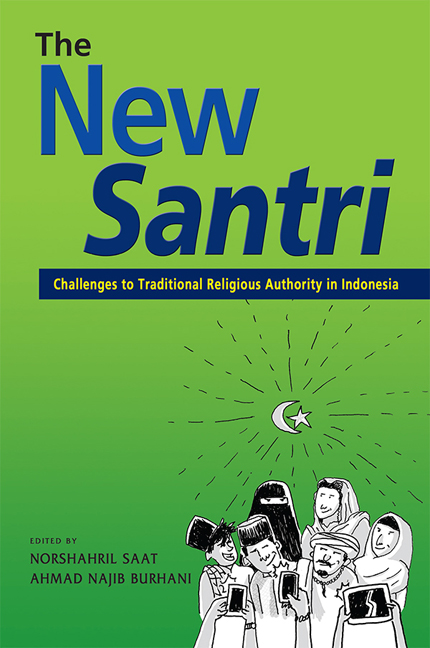9 - Opposing Wahhabism: The Emergence of Ultra-Traditionalism in Contemporary Indonesia
Published online by Cambridge University Press: 24 November 2020
Summary
Introduction
In the name of defending traditionalist Islam, preaching (dakwah) has become a widespread activity in contemporary Indonesia. The aim of dakwah is to promote the traditionalist Sunni version of Islam and to challenge puritanical and other “deviant” groups. The emergence of dakwah is a response to the expansion of global Islamic movements such as Salafi-Wahhabi and Hizbut Tahrir. While many scholars have studied these movements to understand what they perceive as a threat to Indonesian democracy and pluralism, only a few have studied the traditionalist dakwah and its various forms in the post-New Order Indonesia (see for instance Alatas 2008; Zamhari and Howell 2012; Woodward et al. 2012). One gap in the existing studies is an analysis of Sunni traditions and doctrines. This chapter finds that some traditionalist preachers and activists have worked together in reasserting traditional Sunni Islam or what they call “aswaja” (the abbreviation of ahl sunna wa al-jama’a). This movement seeks to reassert traditionalist Sunni orthodoxy while promoting anti-Wahhabism through various media.
The aim of this chapter is to analyse the religious factor that paved a way for the emergence of this new form of dakwah. It argues that its emergence is a response to internal and external threats seen as challenging established religious doctrines and traditional practices. While the Salafi-Wahhabi movement is regarded as the primary “threat”, these dakwah groups also regarded the Shias, liberal Islam, Hizbut Tahrir, and Ahmadiyah as deviant. The first part of this chapter discusses the general concept of Sunni Islam and its particular meaning for traditionalist Muslims in the Indonesian context. The second part examines the social and political context of the post-Suharto era that gave rise to aswaja dakwah and the campaign of anti-Wahhabism among traditionalist Muslims. The third part analyses the variants of aswaja dakwah and its characteristics in contemporary Indonesia.
Sunni and Traditional Islam in Indonesia
The term Sunni refers to ahl sunna wa al-jama’a, meaning the people of the Prophetic tradition (sunna) and community (jama’a). In Indonesia, there are numerous Muslim organizations who claimed to represent the Sunni branch regardless of whether they are traditionalist or reformist in their religious orientation. Each group promotes Sunni Islam based on their own interpretation.
- Type
- Chapter
- Information
- The New SantriChallenges to Traditional Religious Authority in Indonesia, pp. 151 - 176Publisher: ISEAS–Yusof Ishak InstitutePrint publication year: 2020

